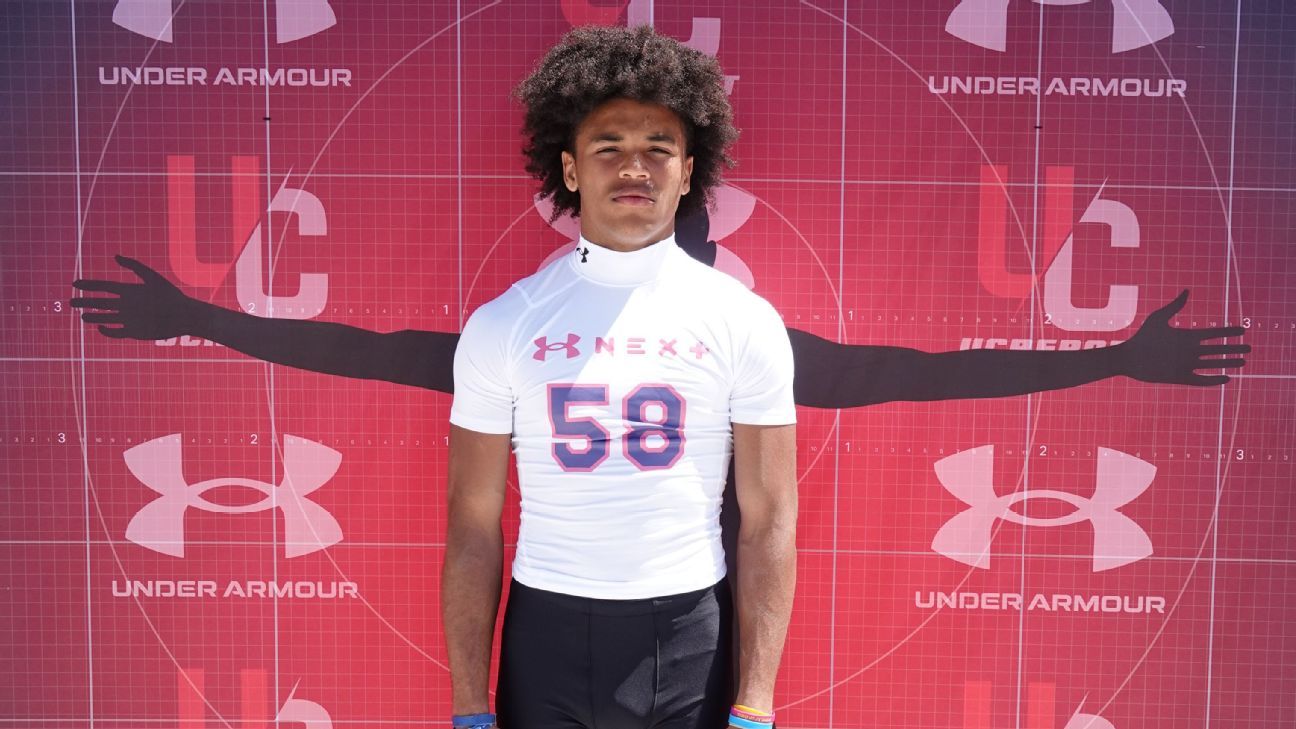USC’s Recruiting Landscape Shifts as Four-Star WR Jerome Myles Decommits
In a surprising twist in college football recruiting, four-star wide receiver Jerome Myles has announced his decommitment from the University of Southern California (USC), a move that is sending ripples through the Trojans’ recruiting strategy and raising questions about the future of the program. Myles, who was once considered a key asset for USC’s offensive plans, has now opened the door for new opportunities, leaving fans and analysts alike to ponder the implications of his decision.
The Impact of Myles’ Decommitment
Jerome Myles had been a highly regarded recruit, known for his speed, agility, and playmaking ability. His commitment to USC was seen as a significant win for the Trojans, who have been striving to enhance their receiving corps. However, his sudden departure from the commitment raises several important questions:
- Talent Pool Concerns: Myles’ decommitment could potentially weaken USC’s depth at the wide receiver position. The Trojans were counting on his skills to complement their existing roster, and without him, they may need to pivot their recruiting strategy.
- Future Recruiting Strategy: The loss of a four-star prospect necessitates a reassessment of USC’s recruiting priorities. Will they focus on securing similar talent, or will they shift their attention to other positions of need?
- Broader Implications for the Program: Myles’ decision may also indicate larger issues within the program, such as the coaching staff’s ability to maintain commitments from top-tier recruits.
Jerome Myles: A Rising Star
Jerome Myles, hailing from a well-regarded high school football program, had garnered attention from several top-tier programs before settling on USC. His skill set includes:
- Exceptional route-running capabilities
- Speed that can stretch defenses
- Strong hands and reliable catching ability
His potential as a future NFL draft pick was a significant factor in his recruitment, and his decommitment could lead to other programs vying for his services. Programs that previously lost out on Myles may now renew their efforts to secure his commitment.
Analyzing USC’s Recruiting Strategy
USC’s recruiting landscape has been dynamic in recent years. Under the leadership of head coach Lincoln Riley, the Trojans have made substantial efforts to bolster their roster. However, decommitments like that of Myles send a message about the volatility in college football recruiting. Key areas of concern for USC’s future strategy include:
- Building Relationships: Establishing strong relationships with recruits and their families is paramount. Coaches must ensure that they remain engaged and communicative.
- Stability in Coaching Staff: The consistency of the coaching staff plays a crucial role in a recruit’s decision. Any uncertainty regarding the future of the coaching staff may deter potential recruits.
- Monitoring Competitor Moves: With other programs actively seeking to fill their rosters, USC must remain vigilant about competitor movements and adjust their strategies accordingly.
Potential Replacements and Future Prospects
With Myles’ departure, the Trojans will likely turn their attention to other recruits to fill the void. Potential candidates could include:
- Three-Star Recruits: USC may consider three-star wide receiver prospects who could develop into impactful players.
- Transfer Portal Opportunities: The NCAA transfer portal offers a wealth of experienced players who could make an immediate impact on the roster.
- Targeting Local Talent: Focusing on local high school talent can help USC strengthen its recruiting pipeline and maintain a competitive edge.
As the Trojans evaluate their options, they must strike a balance between pursuing high-profile recruits and nurturing relationships with less heralded prospects who could develop into key contributors.
Broader Implications for College Football
Myles’ decommitment is not just a USC-specific issue; it reflects a broader trend in college football recruiting. Several factors have played into the shifting dynamics:
- Increased Competition: The rise of programs like Oregon and Washington in the Pac-12 adds pressure on USC to maintain its status as a recruiting powerhouse.
- Transfer Portal Influence: The ease of transferring has altered traditional recruiting strategies, forcing programs to adapt quickly.
- Social Media Impact: Recruits are increasingly influenced by social media, which can sway their decisions and lead to sudden changes in commitments.
Conclusion
The decommitment of Jerome Myles from USC signifies a pivotal moment for the Trojans as they navigate the complexities of college football recruiting. While losing a four-star prospect is undoubtedly a setback, it also presents an opportunity for the coaching staff to reassess their strategies, engage with new recruits, and solidify their roster heading into the upcoming season. As the landscape continues to evolve, USC will need to leverage its historical prestige while adapting to the modern recruiting environment to remain competitive.
As fans and analysts await the next steps from USC, the focus will undoubtedly remain on how the Trojans respond to this challenge and what it means for their future in college football.
For more insights into college football recruiting trends and updates, visit ESPN’s College Football Recruiting.
See more Sky News Portal



